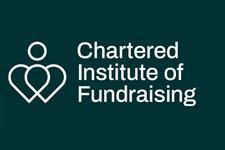The investigation into sexual misconduct at the Chartered Institute of Fundraising has upheld four allegations of sexual harassment against a CIoF Fellow.
The investigation, conducted by the consultancy Tell Jane, was launched in March this year to look into the complaints against the Fellow and allegations that the CIoF had been made aware of his behaviour and had failed to act.
The full investigation report has still not been released, but a summary report was published by the CIoF board today. It says there were “clear organisational and governance failings in our culture and processes” that let down survivors and allowed a man accused of sexual harassment by multiple people to continue to participate in events and training.
The report concluded that the organisation’s former chief executive, Peter Lewis, bore some responsibility for those failings, and revealed it has commissioned a new independent review into the issue of whether the CIoF failed to act on wider concerns and complaints of sexual harassment.
According to the report, the allegations against the Fellow include sexual harassment at regional group events, sexual harassment at special interest group events, sexual harassment of an individual CIoF member (not at an institute event) and sexual harassment at Fundraising Convention 2014.
The report says investigators concluded that “on the balance of probabilities”, the behaviour described by multiple complainants was “likely to have taken place and to have amounted to sexual harassment”.
The man, who has not been named, has been permanently stripped of his CIoF membership, removed as a Fellow and banned from all future CIoF events.
“The ban will be enforced through the new central screening process for participants in Chartered Institute events and activities,” the report says.
The report also acknowledges that the former chief executive of the CIoF, Peter Lewis, who stepped down in June, “bears responsibility, along with other trustees and staff, for not taking action sooner in tackling these cultural and organisational failings”.
The CIoF had previously issued a statement saying the investigation had found “no wrongdoing” by Lewis, but later admitted it should not have published the statement and apologised.
The report says: “The board wants to clarify that the statement issued in June 2021 was not intended to suggest that the former CEO bore no responsibility for the identified failings in the governance and management of the Chartered Institute.”
In terms of whether Lewis was aware of the complaints against the Fellow, trustees concluded that “there was not sufficient evidence available at the time to conclude definitively what happened”.
Survivors and witnesses had previously raised concerns about whether their evidence had been included in the investigation into both Lewis and the Fellow, and that the investigation into Lewis had too narrow a remit.
The report appears to acknowledge this, saying the board “has decided that the evidence provided for this investigation should be reviewed”. The review would “form part of a new wider independent review which we are commissioning into the issue of concerns, reports and complaints of sexual harassment not being acted upon appropriately by the Chartered Institute”.
The failings identified by the report included insisting on formal written complaints rather than verbal disclosures, a lack of action when complaints were made, a lack of understanding of anonymity and a failure to make notes in some meetings discussing harassment allegations.
The investigation also highlighted the fact that where there were patterns of behaviour, as in this case, the chief executive or a trustee could have initiated a complaint themselves under the existing rules.
Investigators recommended more training for staff, volunteers and group chairs on how to handle complaints, and making members and staff aware of how to raise a concern or a complaint.
They called for the CIoF to remove the requirement for an initial complaint to be made in writing, providing avenues for anonymous complaints and ensuring notes are taken of any formal meetings.
Investigators also called for the appointment of a trustee to have oversight of harassment complaints and investigations.
In the report, CIoF trustees said all recommendations had either already been accepted and acted upon or would be taken forward by the organisation’s new Safeguarding Task Group.
“The board wants to repeat our apologies and thanks to the survivors and allies who have fought so hard on these issues over many years,” the report says.
In a statement, Peter Lewis said: “I would like to again express my heartfelt apologies to any women who have been let down by the Chartered Institute of Fundraising.”
He said he had “always taken any complaints brought to my attention seriously and acted on them” and that “in 2019, as soon as I realised that our processes and policies did not offer appropriate support” to complainants, “we set up the Task Group on Sexual Harassment, led by two Trustees, and made changes to allow anonymous complaints and hearsay evidence”.
Lewis also pointed out that he had commissioned the 2020 Learning Review, which informed the subsequent development of the organisation’s Action Plan.
He added: “The allegation that in 2014 a complaint was brought to my attention and that I did not act on it has been investigated twice. Both investigations cleared me of any wrongdoing.”
Beth Upton, one of the complainants in the case, welcomed the news of the independent review, but accused the report of “gaslighting” and said she had lost faith in the CIoF.
(More to follow.)
